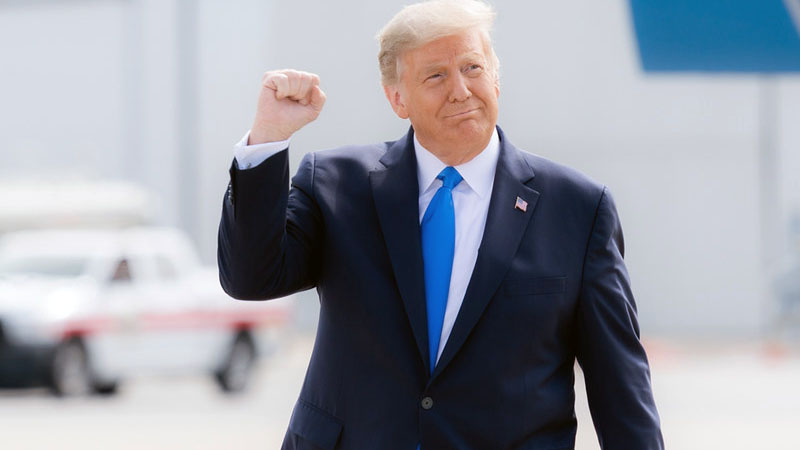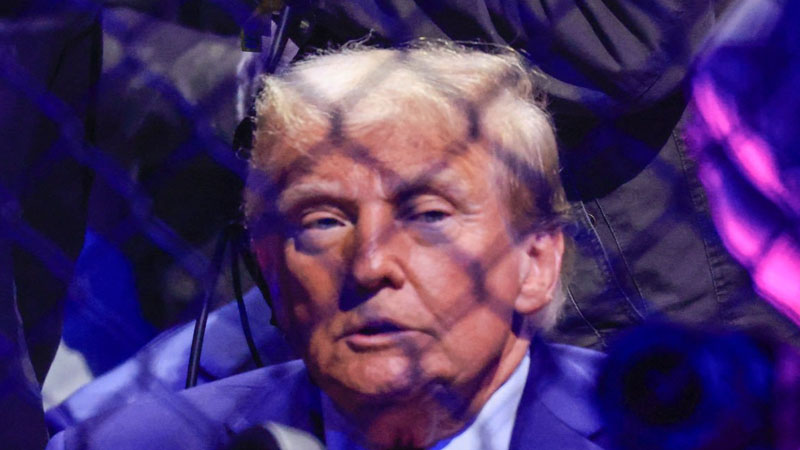President Donald Trump sparked a firestorm of criticism Tuesday after making an offhand remark during a press briefing, declaring, “Senator Schumer has become a Palestinian,” a comment widely condemned as inflammatory and dehumanizing.
The statement came unexpectedly during a discussion on the U.S. economy, when Trump abruptly pivoted to foreign policy and attacked Senate Majority Leader Chuck Schumer for his recent remarks urging a more balanced U.S. approach to the Israeli-Palestinian conflict.
More: Melania Trump Quietly Builds Something Big with a Discreet Team
More: Trump Accused of ‘Sabotaging America’s Health’ as 19 States Sue Over ‘Unlawful Dismantling’ of HHS
“You’d better go out and buy stock now. Let me tell you. This country will be like a rocket ship that goes straight up. This is going to be numbers that nobody has ever seen before,” Trump said, before shifting tone. “Senator Schumer has become a Palestinian.”
The reaction was immediate. Critics accused Trump of using “Palestinian” as a slur, reflecting a troubling tendency in American political discourse to equate Palestinian identity with disloyalty or hostility.
Schumer, the highest-ranking Jewish elected official in American history, drew both praise and criticism in March when he broke political ground by calling for new elections in Israel. He argued that Prime Minister Benjamin Netanyahu had “lost his way” in managing the war in Gaza and urged U.S. policy to balance Israel’s security with Palestinian humanitarian concerns.

Trump’s comment appeared to frame Schumer’s position as a betrayal, implying that advocating for Palestinian rights is tantamount to switching sides. “Using ‘Palestinian’ as a slur is not just inaccurate — it’s dangerous,” said Yousef Munayyer, a Palestinian-American analyst and senior fellow at the Arab Center, Washington,n DC.
“It dehumanizes Palestinians by suggesting their very identity is something antagonistic or dishonorable.” Critics say Trump’s remarks expose a deeper issue in U.S. politics, the normalization of anti-Palestinian sentiment, where supporting basic Palestinian rights is framed not as a stand for human dignity, but as disloyalty or enmity.
More: Donald Trump Reportedly Banned from 2025 Met Gala Amid Past Feud
More: Trump Explodes Mid-Flight, Rips Wall Street Journal as ‘Rotten’ in Fiery Air Force One Rant
“This isn’t just a rhetorical misstep,” said Lara Friedman, president of the Foundation for Middle East Peace. “It perpetuates a toxic narrative that equates Palestinian identity with enmity and delegitimizes the very notion of justice or self-determination for Palestinians.”
Though no formal apology has been issued, advocacy groups are now calling on leaders from both parties to publicly denounce the use of ethnic or national identities as political insults. For many observers, Trump’s remark is a stark reminder of the enduring stigmatization of Palestinian identity in U.S. political culture — and how far there still is to go in fostering meaningful, respectful discourse on the Middle East.
You Might Also Like:
- Singer Cassie Prepares for Courtroom Showdown With Diddy
- Coffee May Sabotage Your Diet by Blocking Key Nutrient Absorption
- Trump Sparks Outrage After Saying ‘Schumer Has Become a Palestinian’ in Fiery Rant
- Blake Shelton reveals real reason his marriage to Gwen Stefani works
- Wichita Boy, 7, Allegedly Dies Days After Drowning Incident at Hotel Pool

